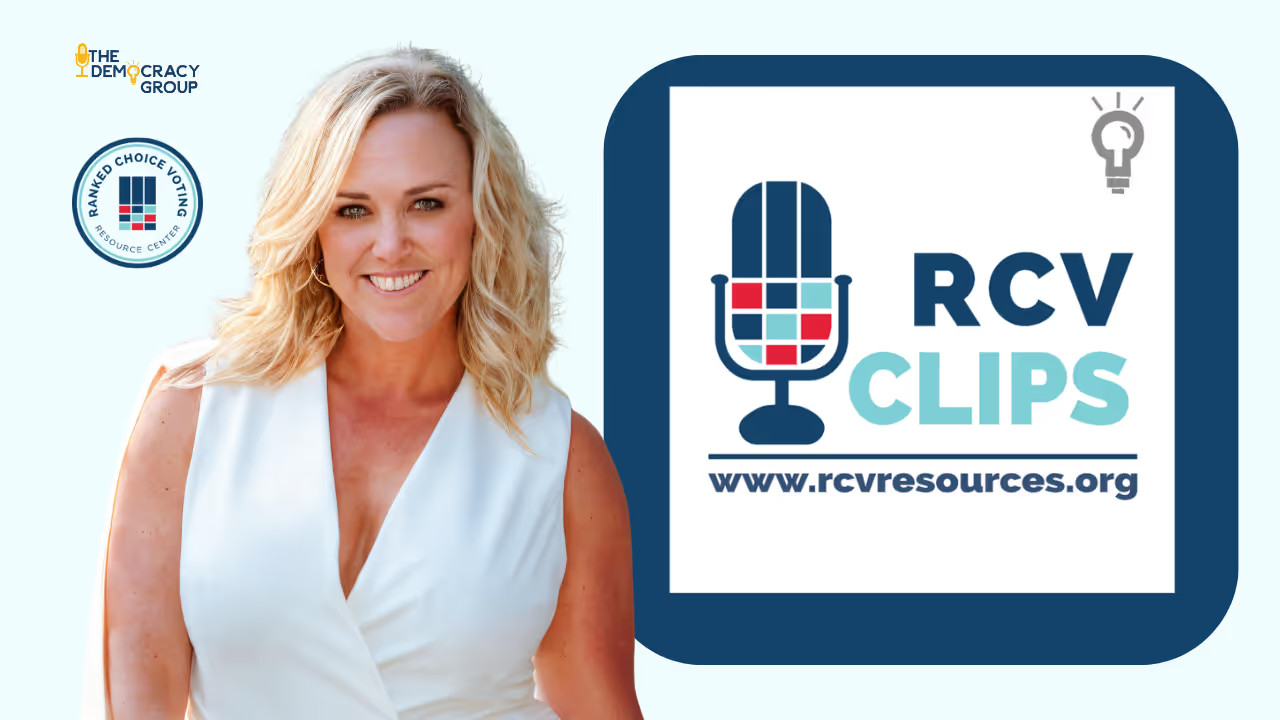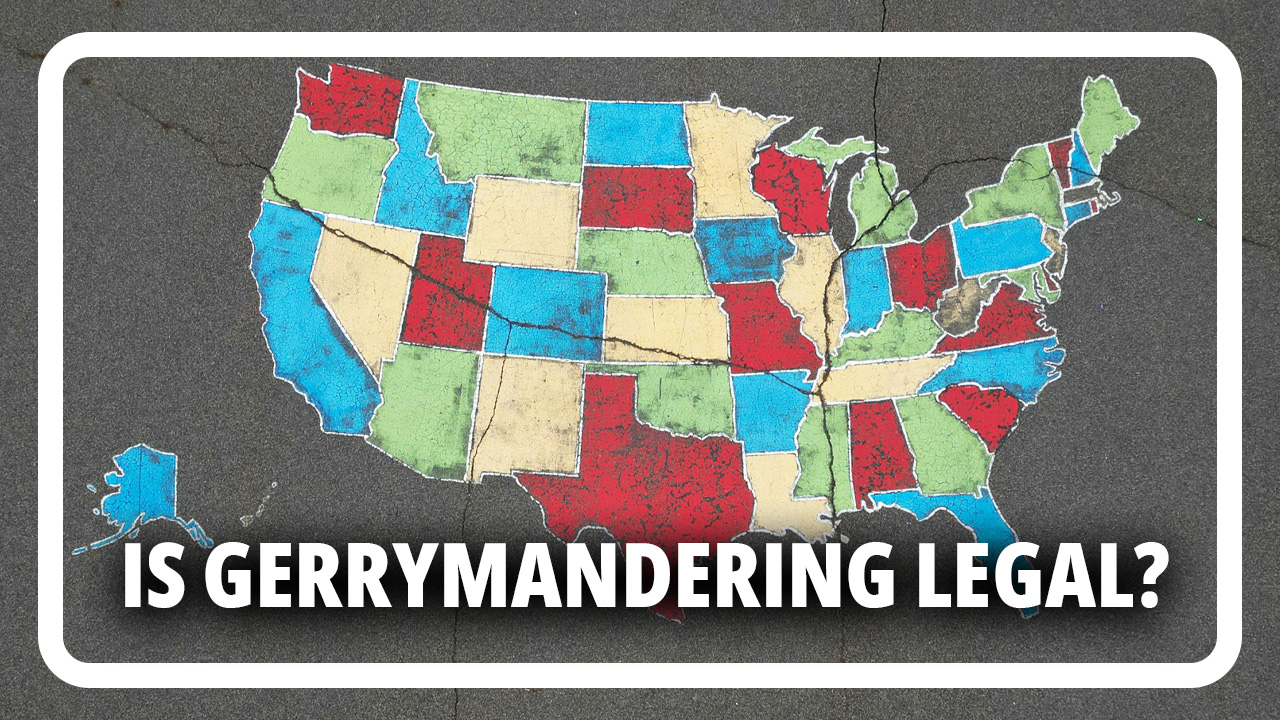
Subscribe to receive a biweekly collection of the hottest podcast episodes from the network, upcoming special events, expert features, and news from your favorite shows.
Subscribe to our NewsletterWith a growing network of podcasts and organizations that create educational content about democracy, civic engagement and civil discourse, we caught up with one of our hosts/producers Kelly Sechrist about the RCV Clips podcast, election administration, and all things ranked choice voting!
Q: Tell me about yourself and RCV Clips.
Kelly: I am the senior director of advancement for the Ranked Choice Voting Resource Center. I have worked in nonprofit for almost 30 years and in various fundraising, communications and PR roles. I joined the resource center staff about four years ago as their very first development director — the center was a year and a half old when I joined and we’re going on about six years now.
We work on the implementation side of a voting method called ranked choice voting. We are a 501(c)(3) nonpartisan nonprofit. We don't do any advocacy. We're not trying to get places to adopt this type of voting but we help jurisdictions who plan to adopt or who have already adopted ranked choice voting to be able to implement it well. Our mission is very simple — we help make ranked choice voting elections better.
Q: How did the idea for the RCV Clips podcast come about?
Kelly: They started the podcast before I joined the organization but I do have some thoughts on this. We’re always looking at the resources, reports, research and communication modes that we're using to make sure that we're reaching the correct audiences. We don't have a location where you can come, learn and train as an election administrator, an advocate or a policymaker. So we needed to make sure that we had as many different digital modes of communication as possible. And that includes having a podcast.
Q: For people who are not familiar with ranked-choice voting, how would you explain or break down the process?
Kelly: In the U.S., we do something typically called plurality voting, meaning you go to the polls, you vote for your person, and the person with the biggest number of votes wins. But what happens in a plurality election is when you have three people, four people, or five people running, you can elect someone with 25% or 30% of the vote. And that leaves 75% or 70% of the jurisdiction who didn't have any say in electing that person. So they're only representative of the beliefs and 25% of the jurisdiction.
Ranked choice voting in the single-winner format (meaning if you're electing a mayor, a president, a county commissioner or a school board member in a district) allows the voters to get to a consensus candidate. So when you go to the polls, you'll have a ballot that has a ranking system listing all the candidates and you get to choose and rank your first, second, third, fourth, however many choices you're allowed to bring.
On the backside when you calculate the winner, the first thing you do is add up all the first-choice votes or everybody's very first choice. And if one of those candidates receives 50% plus one vote, they declare the winner just like in a plurality contest. If they don't, the person with the lowest number of votes is eliminated. And the people who voted for that person, their next choice vote will be allocated so their votes move to their next choice until you get a candidate who wins with 50% plus one. What that means is at least half the public, half of the jurisdiction who voted either really love, like or can be OK with the candidate who's elected.
Q: How has RCV Clips as a podcast helped the resource center in not only getting the word out but also educating people on ranked choice voting and politics
Kelly: Frankly, we’re election nerds and we like to be election nerds. But what we do is we tell some stories around that and that helps people outside and inside of the RCV world better understand our work and voting as a whole. We have talked to election officials who did some really innovative auditing on ranked choice voting election this year and people about resources that we have, so that folks really know and understand how we can help them.
Someone said to us the other day, “You are like ranked choice voting therapist, you just make it seem like it's all gonna be okay.” And that's truly what we do and what we want to be there for — we want to be a neutral and trusted source where folks that are passing the laws, folks that are trying to get laws passed, and folks that are boots on the ground, implementing the laws can get the help they need.

RCV Maps is the Ranked Choice Voting Resource Center’s primary research project. This project is a state-by-state analysis of voting equipment ranked choice voting (RCV) capability in each state.
RCV Maps provides users a starting point for understanding what will be needed for any state, county, or city to implement RCV. Each state assessment includes:
- A high-level introduction to RCV election administration best practices.
- Analysis of the voting systems used by each state election administration division (such as county-level or city-level) to run elections to determine how ready they are to run RCV elections.
RCV Maps includes all 50 states and Washington, DC.
Subscribe to receive a biweekly collection of the hottest podcast episodes from the network, upcoming special events, expert features, and news from your favorite shows.
Subscribe to our Newsletter
Is Gerrymandering Legal? Learn what gerrymandering is, how it shapes elections before votes are cast, and what citizens can do to protect democracy from unfair maps.
Read Post.png)
You're invited: Celebrate our podcast fellows!
Read Post
Public libraries do far more than lend books or serve as polling places!
Read Post